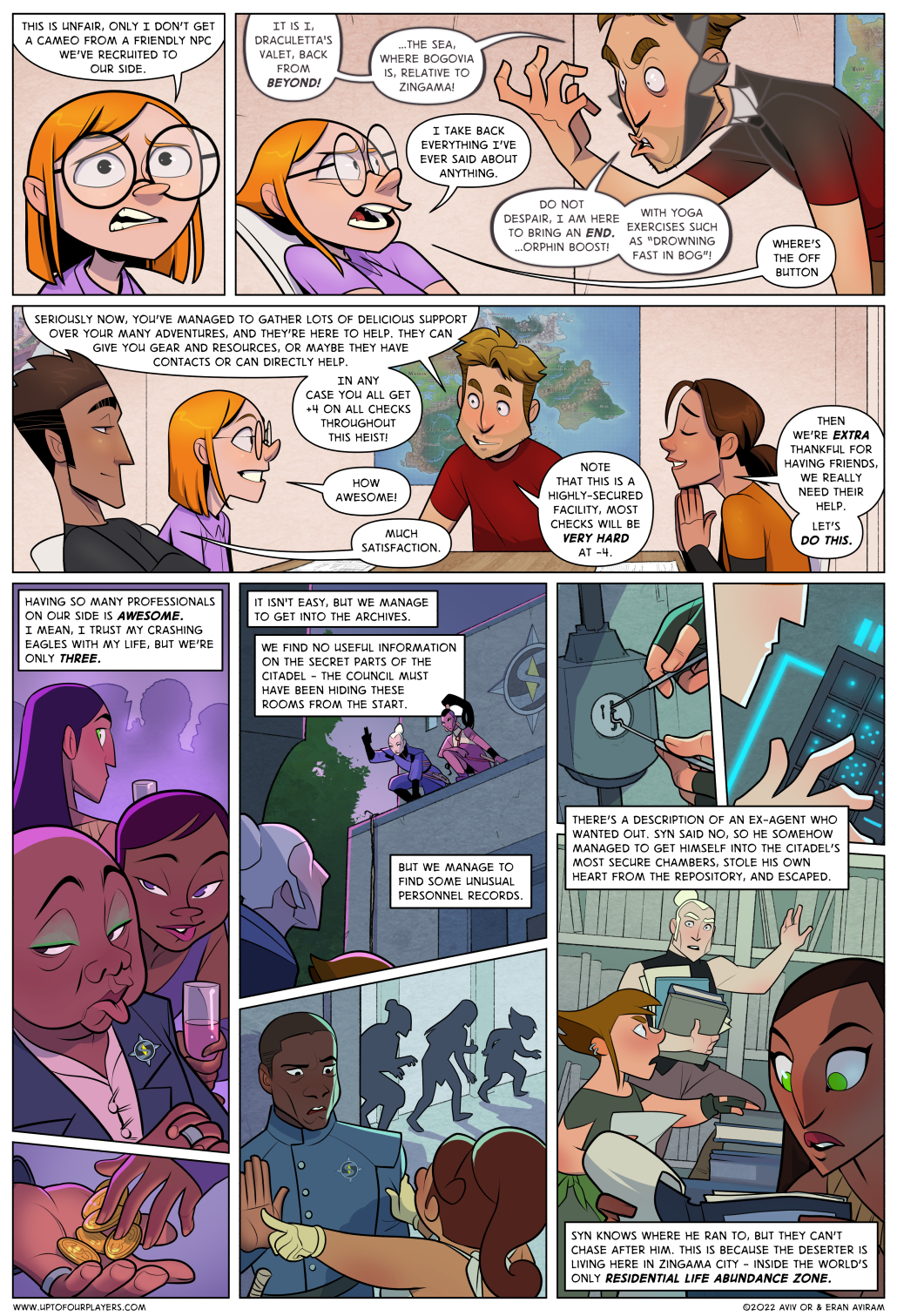Beware, a call back!!
The players get a +4 on their rolls, but also a -4, so it seems like they just make a regular roll, so what’s the point. But if we also look at the context – as we should – we realise this is not a “regular roll” (and no such thing exists), but a roll that is made with a -4 because of how difficult this situation is, and also with a +4 because of how much help the heroes get from their allies. This makes the atmosphere around the table surrounding these rolls into an intense moment, and even a plain success is a reason to feel grateful to the presence of our NPC allies and feeling proud for having gathered them during our adventures.
This narrative context is the point, the math is just a way to represent it in the paradigm of the task resolution mechanic, which we only use in order to infuse uncertainty into the narrative.
A person who looks at the roll and says “it’s just a regular roll” is staring at the tools we use to achieve the goal, making an (unintended) reductionist argument, believing that the math equation is, by itself, the thing that requires critique. But this confuses the tools themselves with the reason we use them in the first place, which is the goal of achieving a specific play experience. Context matters everywhere and in everything, and that includes tabletop RPG analysis.




